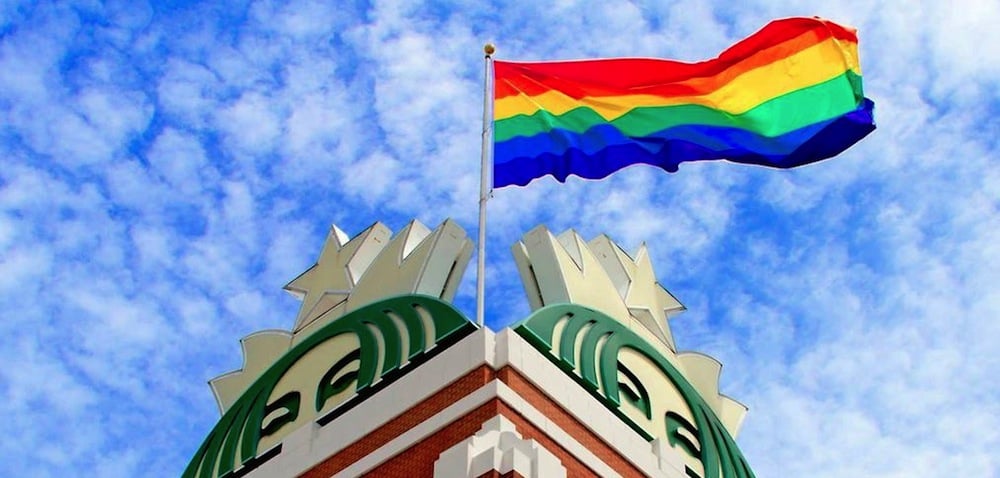Taylor Trice, a former Starbucks employee in North Carolina, alleges she was terminated for voicing objections against the company’s LGBT Pride display and pronoun policy. Trice, a Christian, expressed discomfort with using preferred pronouns, citing religious beliefs that contradict the act as lying, though she affirmed using customers’ names.
In a widely circulated video, Trice criticized the LGBT Pride display in the Apex, N.C., store, deeming it inappropriate and not family-friendly. She warned management about potential negative reactions from families and children due to the display’s content, which she felt exceeded the bounds of the rainbow symbolism traditionally associated with Pride.
Trice recounted encountering defensiveness from Starbucks management when discussing her concerns about the display and the pronoun policy. She admitted her prior unawareness of Starbucks’ liberal stance, initially perceiving it as merely a high-end coffee shop. Trice’s employment was terminated following a complaint, which she claims stemmed from discomfort with her views rather than any mistreatment of colleagues.
Former Starbucks Employee Alleges Termination Due to Opposition to LGBT Display and Pronoun Policy (Credits: The New York Times)
Despite her termination, Trice maintains an amicable stance toward her former co-workers, expressing fondness and a desire for their spiritual well-being. She has since secured another job but remains firm in her religious convictions and opposition to what she perceives as compromising her beliefs.
Starbucks declined to comment on the specific employment matter but emphasized its commitment to fostering an inclusive environment free of discrimination or harassment. The company asserts adherence to anti-harassment and anti-discrimination policies, expecting all employees to comply with company standards.
Trice’s case reveals the intricate interplay between religious convictions, corporate regulations, and LGBTQ+ acceptance within the workplace. While Starbucks actively promotes an inclusive environment, her experience prompts a closer examination of how to embrace diverse viewpoints within the company.
This incident brings to the fore ongoing discussions surrounding the equilibrium between safeguarding religious liberties and upholding the rights of the LGBTQ+ community in contemporary societal discourse. It also underscores the complexities that corporations encounter when addressing these nuanced and often contentious matters.
